Read the Skeptic Research Center’s general report, “Pandemic Politics: How 2020 Impacted Americans’ Social and Political Attitudes,” based on their nine reports from the Civil Unrest and Presidential Election Study (CUPES) released in late 2020–early 2021. PLUS: Michael Shermer speaks with author, journalist, and TV personality Nick Pope about UAPs, UFOs, conspiracies, and cover-ups.
Tags
-
browse by topic
evidence
eSkeptic for February 1, 2022
Mytho-history: The “Evolution” of Adam and Eve
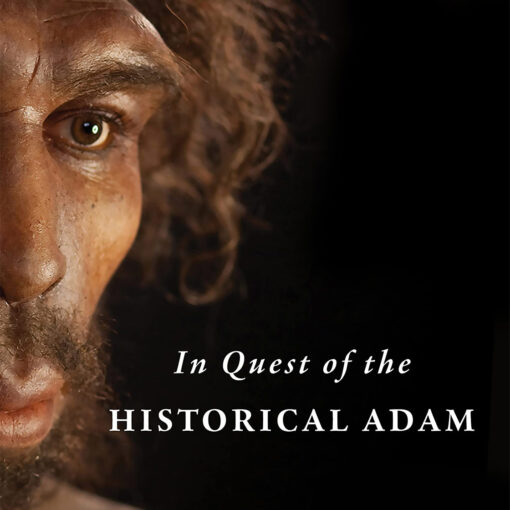
One of the most influential conservative Christian theologians goes all-in for evolutionary science and finds room for a Paleolithic Adam and Eve. This has left some schools of Christian orthodoxy scrambling to find a way forward. With any luck, they may start to reevaluate their opposition to evolution altogether.
Matt Ridley on the Search for the Origin of COVID-19
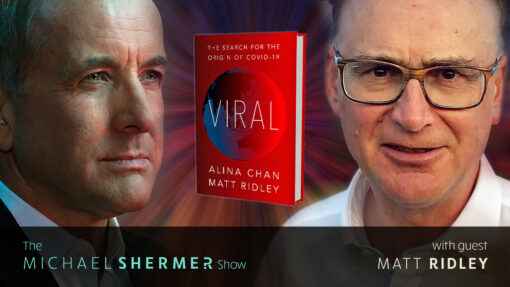
A new virus descended on the human species in 2019 wreaking unprecedented havoc. Finding out where it came from and how it first jumped into people is an urgent priority, but early expectations that this would prove an easy question to answer have been dashed. Nearly two years into the pandemic, the crucial mystery of the origin of SARS-CoV-2 is not only unresolved but has deepened.
eSkeptic for December 11, 2021
Skeptic 26.4 is here: Havana Syndrome Hysteria. Instantly download the digital edition or pre-order the print edition today. Plus, Michael Shermer speaks with Matt Ridley about his research investigating the origin of COVID-19.
Gale Sinatra & Barbara Hofer — Science Denial: Why It Happens and What to Do About It
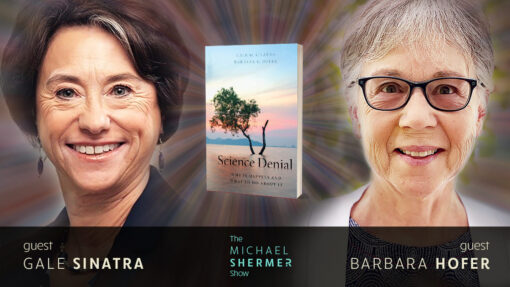
In episode 212, Michael Shermer speaks with Gale Sinatra and Barbara Hofer about the key psychological explanations for science denial and doubt that can help provide a means for improving scientific literacy and understanding — critically important at a time when denial has become deadly.
eSkeptic for September 25, 2021
In episode 212, Michael Shermer speaks with Gale Sinatra and Barbara Hofer about the key psychological explanations for science denial and doubt that can help provide a means for improving scientific literacy and understanding — critically important at a time when denial has become deadly.
Osteopathy Then and Now

What is osteopathy? What is the difference between an MD, a DO, and an osteopath in the US? Why do students choose a DO school? Should the DO degree be abolished? Find out what Harriet Hall, M.D. says in this column from Skeptic magazine 26.1 (2021).
eSkeptic for July 17, 2021
In episode 193, Michael Shermer speaks with Chris Edwards about educational reform and thought experiments. Plus, Harriet Hall, M.D. discusses osteopathy. What is it? What is the difference between an MD and a DO? Should the DO degree be abolished?
Michael Gordin on the Fringe of Where Science Meets Pseudoscience
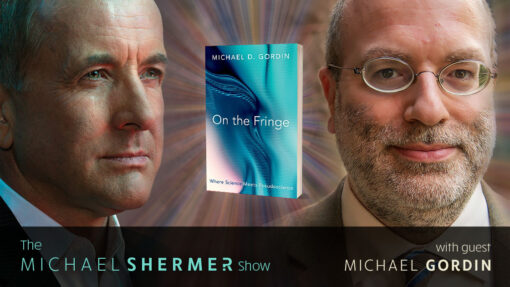
Everyone has heard of the term “pseudoscience,” typically used to describe something that looks like science, but is somehow false, misleading, or unproven. In episode 191, Michael explores with Michael Gordin the philosophical and historical attempts to address the problem of scientific demarcation.
eSkeptic for July 3, 2021
Everyone has heard of the term “pseudoscience,” typically used to describe something that looks like science, but is somehow false, misleading, or unproven. In episode 191, Michael explores with Michael Gordin the philosophical and historical attempts to address the problem of scientific demarcation.
Metaphors & Mindsets: How to ‘Update’ Beliefs
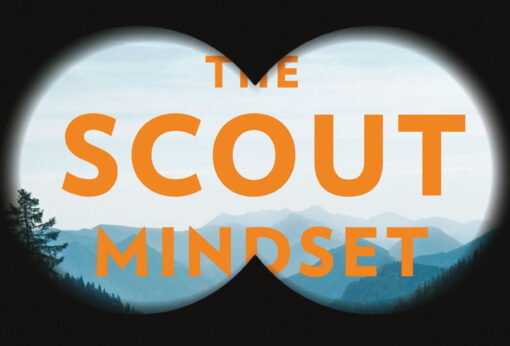
Admitting our beliefs are false can feel like a failure, a sign of weakness. Instead, we should look at changing our mind as an ‘update.’ The following is a review by Michael Shermer of The Scout Mindset: Why Some People See Things Clearly and Others Don’t by Julia Galef (Portfolio).
Naomi Oreskes — Why Trust Science?
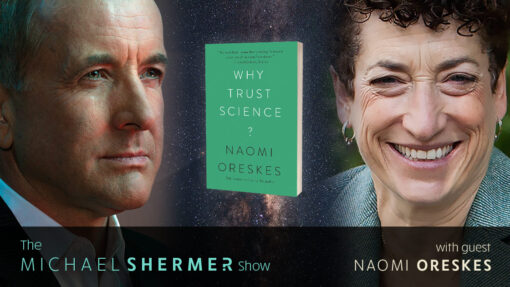
In this interview, based on her landmark book, Why Trust Science?, historian of science Naomi Oreskes offers a bold and compelling defense of science, revealing why the social character of scientific knowledge is its greatest strength — and the greatest reason we can trust it. Drawing vital lessons from cases where scientists got it wrong, Oreskes shows how consensus is a crucial indicator of when a scientific matter has been settled, and when the knowledge produced is likely to be…
eSkeptic for April 17, 2021
In episode 173 of Michael Shermer’s podcast he speaks with historian of science Naomi Oreskes about her landmark book, Why Trust Science? that offers a bold and compelling defense of science, revealing why the social character of scientific knowledge is its greatest strength — and the greatest reason we can trust it.
eSkeptic for May 1, 2020
The media keeps making claims that the Pentagon supposedly announced that UFOs are ‘real.’ How much of that is really true? Robert Sheaffer — a leading skeptical investigator of UFOs — separates the facts from the hype. Plus: Dr. Michael Shermer examines the claims about the Bermuda Triangle using the tools of skepticism, science, and rationality to reveal that there is no mystery to explain.
Claims About a Government “UFO Program”: How Much is True?

The media keeps making claims that the Pentagon supposedly announced that UFOs are ‘real.’ How much of that is really true? Robert Sheaffer — a leading skeptical investigator of UFOs — separates the facts from the hype.
How to Navigate Contentious Conversations
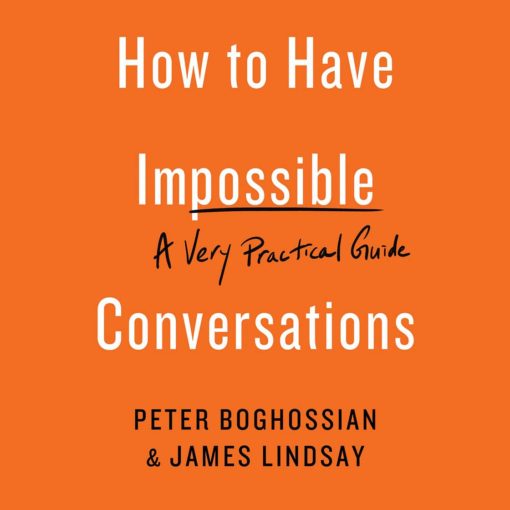
An excerpt from How to Have Impossible Conversations: A Very Practical Guide provides some tools to help people navigate contentious conversations.
eSkeptic for February 25, 2020
In Science Salon # 105 Michael Shermer speaks with Diana Pasulka about her book: American Cosmic: UFOs, Religion, Technology. PLUS an excerpt from How to Have Impossible Conversations: A Very Practical Guide provides some tools to help people navigate contentious conversations.
Hugo Mercier — Not Born Yesterday: The Science of Who We Trust and What We Believe
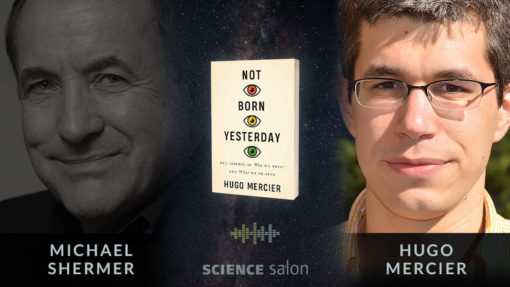
Not Born Yesterday explains how we decide who we can trust and what we should believe — and argues that we’re pretty good at making these decisions. Hugo Mercier demonstrates how virtually all attempts at mass persuasion — whether by religious leaders, politicians, or advertisers — fail miserably.
eSkeptic for January 28, 2020
In Science Salon # 101 Michael Shermer speaks with Hugo Mercier about his new book: Not Born Yesterday: The Science of Who We Trust and What We Believe.
Virtue Signaling, Memory, Myth, and JFK
In Science Salon # 93 Michael Shermer speaks with evolutionary psychology professor Geoffrey Miller about his book: Virtue Signaling: Essays on Darwinian Politics and Free Speech. Plus, Michel Jacques Gagné examines the reasons shocking events like the Kennedy assassination give rise to conspiracy myths.
SKEPTIC App
Whether at home or on the go, the SKEPTIC App is the easiest way to read your favorite articles. Within the app, users can purchase the current issue and back issues. Download the app today and get a 30-day free trial subscription.








